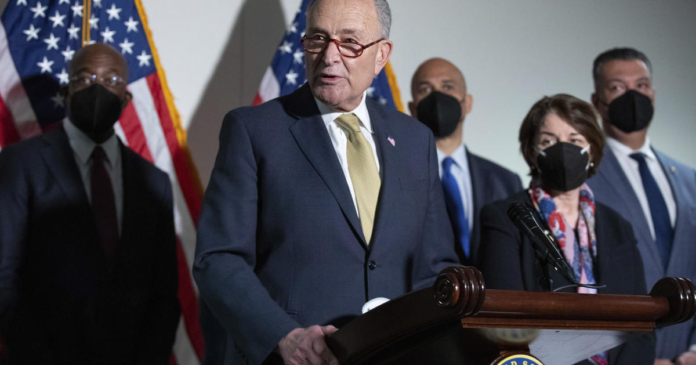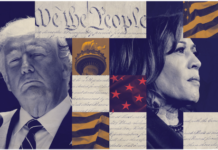By Maler Suresh
The Senate recently voted on the Freedom to Vote: John R. Lewis Act, a voting rights bill designed to restore elements of the Voting Rights Act, such as the requirement that jurisdictions with a history of discrimination have voting changes approved by the Justice Department or federal courts before they can be put in place, as well as nullify new voting restrictions that have emerged in 19 states across the country following the 2020 election. The legislation combined two bills that Republicans had previously blocked four times with a filibuster, the Freedom to Vote Act and the John Lewis Voting Rights Advancement Act. It would establish automatic voter registration programs, make Election Day a national holiday, establish a minimum of 15 days of early voting, and require that all voters be able to vote by mail, among other measures.
However, the bill was struck down 51-49 (majority leader and New York Senator Chuck Schumer changed his vote to “no” before the vote was gaveled so that he can offer a motion to reconsider the vote in the future.) The decision was split along party lines, with all Democrats voting for the bill and all Republicans voting against it. Technically, when the Senate is split 50-50, the Vice President, Democrat Kamala Harris, should have the tie-breaking vote. However, because of the filibuster, a simple majority is not enough. The Democrats needed 60 votes to pass this legislation, meaning that it required votes from the opposing party. Votes that they knew they wouldn’t get. Democrats were aware that this bill would not pass, but they pushed it to the floor hoping to highlight the voting rights crisis and to underscore the refusal of Republicans to confront it.
The discussion on the floor was mainly defined by two arguments. Democrats argued that Republicans were allowing America to regress by preventing citizens, with a particular effect on minority voters, from exercising their right to vote. Republicans saw the legislation as the Democratic party’s attempt to gain control over state elections. Senator Chuck Schumer, asked “Shall we see American democracy backslide in our time, grow feeble in the jaws of its adversaries, and ultimately succumb to the cancer of voter suppression? The answer, in a large sense, could depend on how we move forward this evening.” In contrast, Senate Minority Leader and Republican Senator of Kentucky, Mitch McConnell, accused Democrats of seeking to “shatter the soul of the Senate for short-term power.”
In a final attempt to get the bill passed, Democrats also attempted to alter the Senate’s filibuster rules in order to make an exception for the voting rights measure to move forward with a simple majority. However, they lacked support within the party to change the filibuster rules. Along with all Republicans, Democratic Senators Joe Manchin III of West Virginia and Kyrsten Sinema of Arizona voted against the rule change. “We’ll make up new rules as we go along, invite ourselves and future majorities to disregard the rule book at will,” Mr. Manchin said. “Let this change happen this way and the Senate will be a body without rules.”
By voting to keep the filibuster as is, it is apparent that much of the Democrat’s agenda will be stymied. Already, Republicans have blocked multiple bills including legislation to establish a committee to investigate the January 6 insurrection and a measure aimed at guaranteeing equal pay in the workplace. Other bills, like a deal on police reform and policies intended to establish universal background checks for gun purchases, to protect workers’ right to organize, and to shield LGBTQ people from discrimination, have collapsed because they haven’t been able to garner sufficient Republican support. Whatever policies emerge next will need to be much more limited in order to have a change at passing with Republican support.
Source: cbs.com









